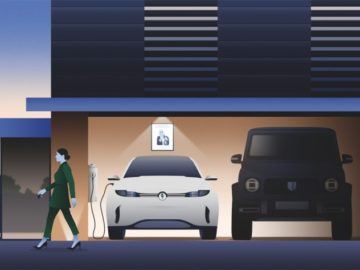Nancy Walecki in Harveard Magazine:
 IS A GAS GUZZLER actually better for the environment than an electric vehicle? Sometimes. Ashley Nunes, Harvard Law School’s Labor and Worklife Program fellow, and undergraduate economics concentrator Lucas Woodley ’23 found that many electric vehicle (EV) owners—usually wealthy individuals incentivized by federal tax credits to purchase an electric vehicle as a second car—are doing more environmental harm than good. Why? They’re not driving enough.
IS A GAS GUZZLER actually better for the environment than an electric vehicle? Sometimes. Ashley Nunes, Harvard Law School’s Labor and Worklife Program fellow, and undergraduate economics concentrator Lucas Woodley ’23 found that many electric vehicle (EV) owners—usually wealthy individuals incentivized by federal tax credits to purchase an electric vehicle as a second car—are doing more environmental harm than good. Why? They’re not driving enough.
To build an electric-car battery, manufacturers need lithium, and to find lithium, they need the high-altitude salt flats of Bolivia, Chile, and Argentina. There, beneath turquoise brine lakes, is mud rich in manganese, potassium, borax, and lithium salts. It’s chemical- and water-intensive to isolate lithium from all that mud, and it takes even more energy to make a functional car battery from it. As a result, building a clean-burning EV battery is twice as greenhouse-gas-intensive as making a conventional internal combustion engine.
More here.
